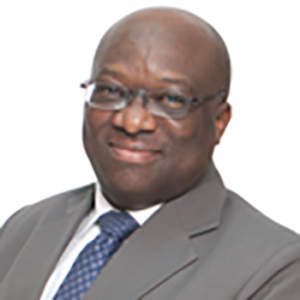The Ministry of Finance has said that the $500 million loan it seeks the Senate’s approval to access will be used in empowering the poor in the country.
The Permanent Secretary of the Ministry, Mahmoud Isa-Dutse, while appearing before the Senate Committee on Local and Foreign Debts, said the projects for which the loan is requested will improve the living conditions of the poor.
He said the programme tagged, ‘Social Safety Net’ will be funded in partnership with the World Bank and the International Development Association, IDA.
The chairman of the committee, Shehu Sani, Kaduna-APC, had sought explanation from Isa-Dutse on how the loan would be sourced, utilised and serviced.
“We want to know what that money will be used for, how it is going to be repaid. We want to have the details of the impact if eventually the approval is granted for you to source the money,” Sani said.
“From the name attached to it, ‘Social Safety Net,’ we believe that it is about the people, it is about the country. But if such money will be sourced from the World Bank, we’ll like clarifications to how that money will be able to ‘service itself’.”
Responding, the permanent secretary explained that the loan conditions are favourable and would benefit the country in the long run.
“The project itself costs more than that. It is about $1.8 billion and the $500million is the World Bank contribution. We went to the concessionary arm of the International Development Association which gives the softest terms. The maturity term of the loan is 25 years, inclusive of a grace period of five years. So, we won’t start to pay until after five years. The interest rate is 1.25 per cent it comes with a service charge of 0.75 per cent and a commitment charge of 0.5 per cent.”
He said that the social programmes such as the safety net would bridge the gap between the rich and the poor.
“The main objective of the project is to provide social safety net. We are a large population and close to one-third of that population is living below the poverty line which translates to about close to 60 million Nigerians.
“As a country, we have very skewed income distribution. A study has shown that up to 25 per cent of the population own more than 50 per cent the total money. It’s one of the most skewed income distribution in the continent.
“Government doesn’t need to leave everything to the market forces. Study shows that when government targets the poorest in the society to make the living condition better in terms of education, health, water, it actually assists in economic development.”
On process of accessing the loan, he said that the commissions charged with the responsibility will collate data of vulnerable Nigerians so as to identify those eligible for the loan.
He added that the projects would be made accessible to state governments provided they meet conditions set by the Federal Government.
“It’s not just ‘dashing’ of money, conditions are set. For instance, a family can be told, we’ll give you such an amount provided you put your kids in school. Or register for immunisation.
“The project will target poor households in Nigeria, identify ‘square combinations’ of geographical and community based targets included in that national social register. The programme will expand gradually to cover 4 million households. Part of the loan will be used to develop the capacity to identify meaningfully those that are poor that need to be assisted.
“All the 36 states, including the FCT, are eligible. Although conditions will be set, states will be free to apply provided they satisfy the conditions and sign a memorandum of understanding with the Federal Government.”
Isa-Dutse noted that the Finance Ministry is only charged with responsibility of securing the loan while the two commissions charged with implementation are under the office of the Vice President, Yemi Osinbajo.
He added that the commissions are in the right position to offer more details on implementation of the projects.




